Art Fairs
Are Dealers Replaceable in the Crypto Era? One Artist Is Selling Her Work Via ATM at Frieze New York
Agustina Woodgate is selling art via ATM.
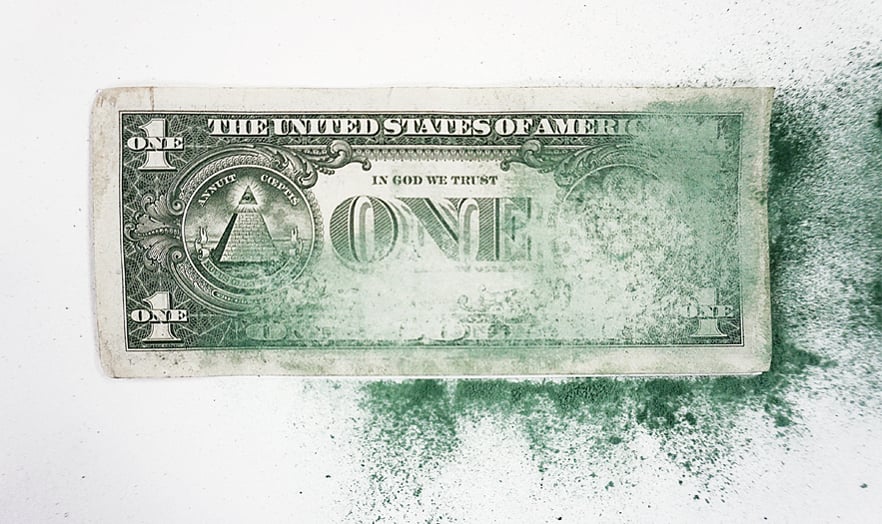
Agustina Woodgate is selling art via ATM.

Sarah Cascone

Collectors and dealers alike knew that things wouldn’t be the same when in-person art fairs made their return to New York this week with the opening of Frieze at the Shed. But strict timed entry slots, mandatory face masks, and temperature checks aren’t the only changes at hand: Now, for the first time, you can also buy art directly from an ATM.
Specifically, you can buy one work, part of “Don’t Trust, Verify,” a new project from Argentinian artist Agustina Woodgate. She has installed a working ATM at the fair, loaded with dollars that she’s transformed into art by painstakingly sanding $1 bills to remove the markings on both sides.
“It’s a real ATM, hacked by Agustina,” Federico Curutchet, artistic director of Buenos Aires and New York gallery Barro, told Artnet News. “The idea is that this machine can replace the job of the gallerist. You can purchase the work from the machine using your debit card.”
“The bank will withdraw $100, and the bill you get is sanded by the artist,” he added. “There’s a political gesture in the idea of sanding paper.”
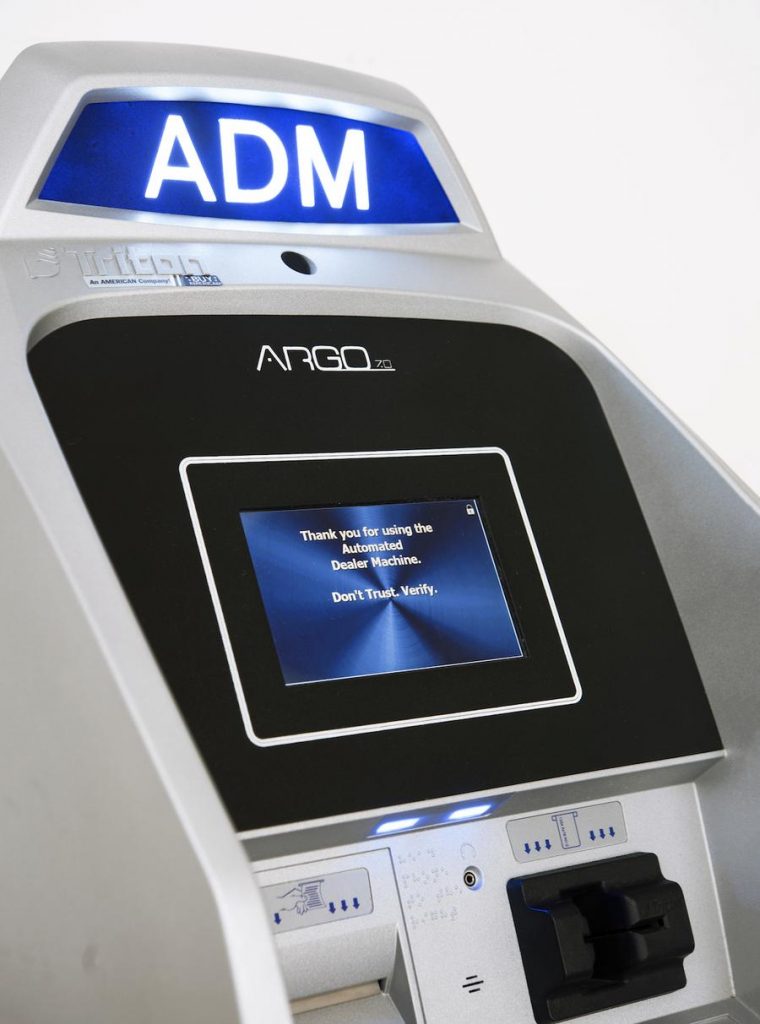
Agustina Woodgate, “Don’t Trust, Verify,” a project from Barro at Frieze New York. Photo courtesy of Barro, New York and Buenos Aires.
To complete the transaction, you also have to purchase the accompanying certificate of authenticity in a more traditional manner from the dealer. The booth includes an area that mimics a bank counter, where collectors sign a release before withdrawing Woodgate’s “cash” from the ATM and pay the remaining $1,800 to complete the $2,000 sale. (The contract prohibits buyers from taking photographs while using the machine.)
The project takes its title from the slogan of Bitcoin, the best-known cryptocurrency. As the art world grapples with the sudden craze for NFT art, where digital images are minted as non-fungible tokens and sold on the blockchain, sometimes for hundreds of thousands—if not millions—of dollars, Woodgate’s Frieze presentation serves as a reminder that all currency—not just the crypto varieties—have been assigned arbitrary values by society.
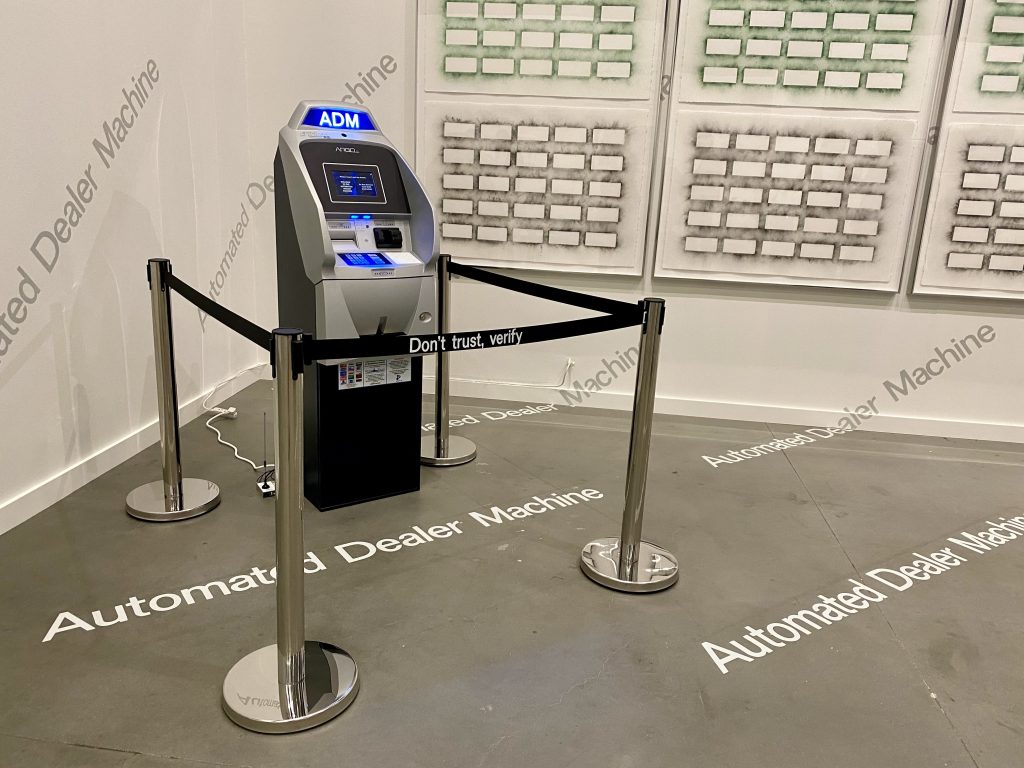
Agustina Woodgate, “Don’t Trust, Verify,” a project from Barro at Frieze New York. Photo by Sarah Cascone.
“The artist works with theories of value, and the idea of creating new value,” Curutchet said, holding up an unsold certificate of authenticity featuring images of the front and back of one of Woodgate’s sanded dollar bills. “This paper is more expensive than the bill itself.”
In addition, Woodgate has transformed the evidence of the physical act of sanding down U.S. currency into art, creating four works on paper from the remnants. (The process has also been memorialized as an NFT, naturally, currently for sale on Foundation.)
Each piece represents both the front and the back of 25 bills, which were placed in a grid before she sanded them down, affixing the resulting green and black dust (the one dollar bill is entirely black on one side) to the paper and then removing the money, leaving a ghostly white blank space behind.
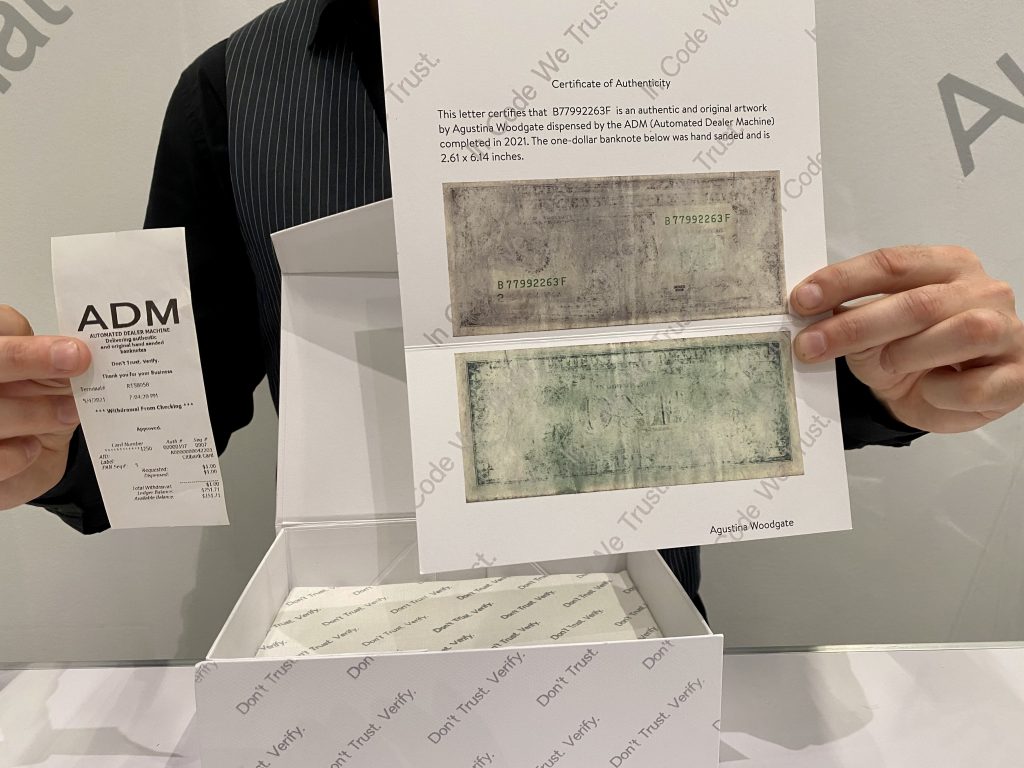
Agustina Woodgate, “Don’t Trust, Verify,” a project from Barro at Frieze New York. Photo by Sarah Cascone.
Also for sale are three editions—priced at $35,000 each—of the ATMs themselves, which Woodgate purchased used in Miami. The artist hired software developers to update the machine’s interface to sell the bills for $100, turning the automated teller machine into an automated dealer machine, or ADM.
“It’s not easy to hack the machine. Actually, it’s kind of illegal,” Curutchet admitted. “There are some gray areas. That’s why you can’t take pictures when you are operating a machine.”
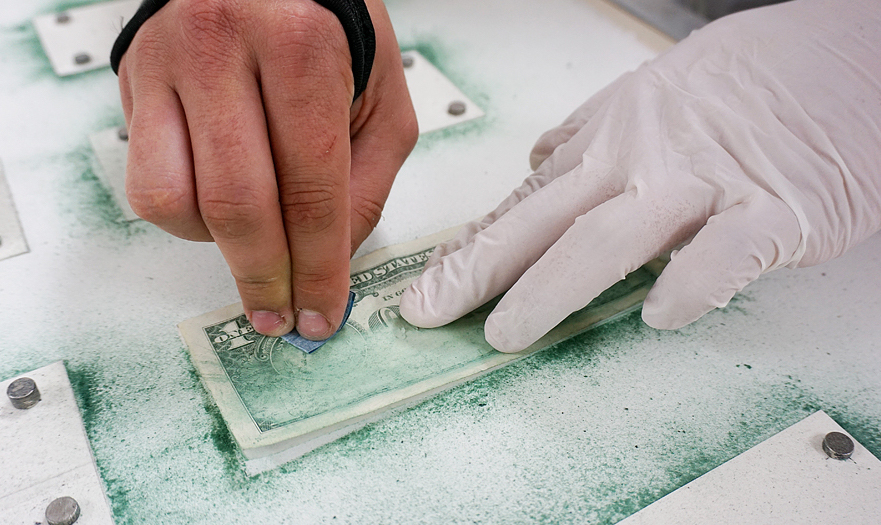
Agustina Woodgate, “Don’t Trust, Verify,” a project from Barro at Frieze New York. Photo courtesy of Barro, New York and Buenos Aires.
If you buy the machine, it comes loaded with 25 of the 100 bills used in the project. The last 25 are available for individual sale from the ATM at the fair. The gallery hadn’t had any takers yet for the bills or the ATM when Artnet News visited the booth on opening day, but had sold two of the works on paper for $15,000 each.
When asked if Woodgate’s piece could really signal the beginning of the end for the art dealer, Curutchet said he wasn’t worried about being replaced by a machine. “No,” he said. “I think it’s funny.”
“Agustina Woodgate: Don’t Trust, Verify” is on view from Barro as part of Frieze New York at the Shed, 545 West 30th Street, New York, May 5–May 9, 2021.